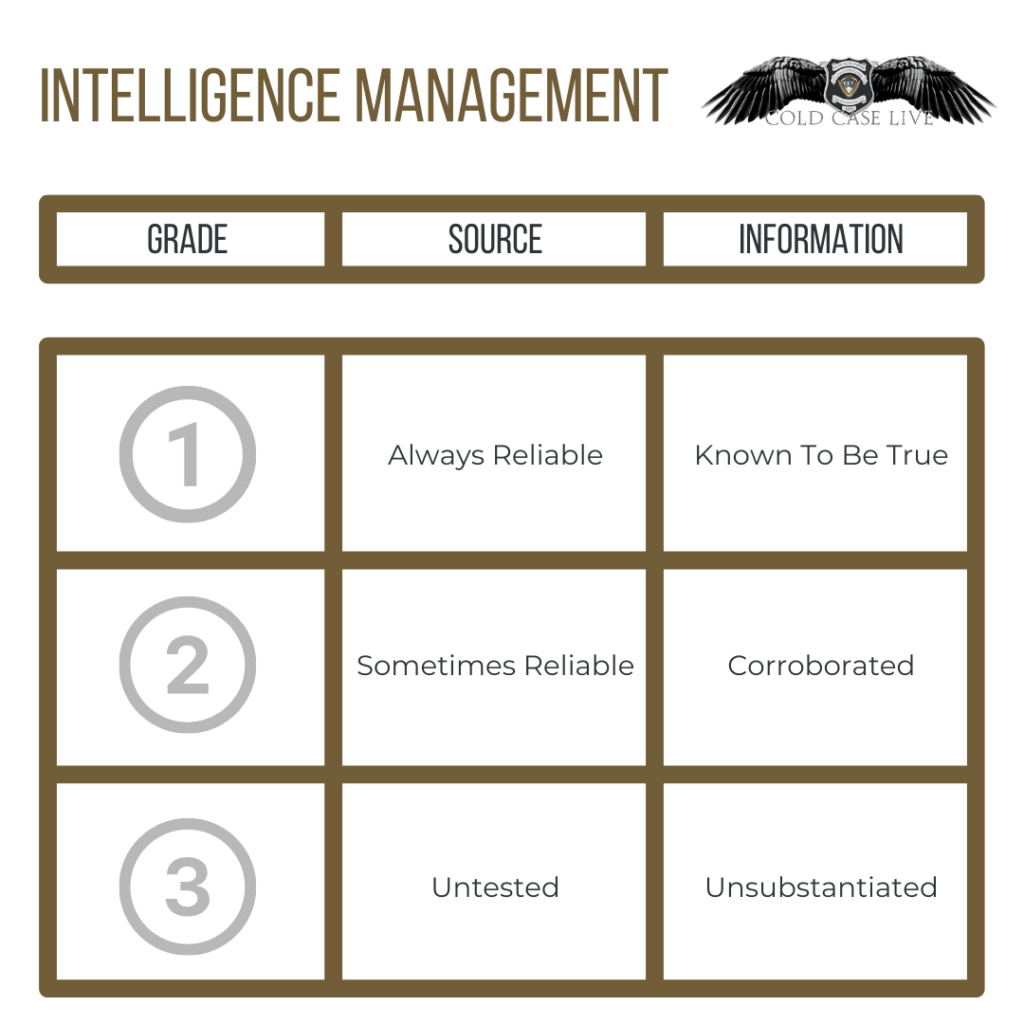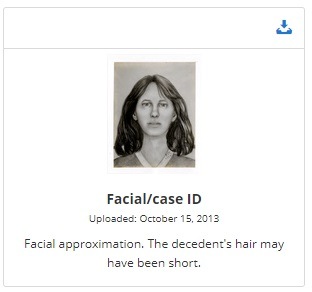
Intelligence Management
Intelligence Management is a powerful tool, not just in law enforcement but in daily life.
It helps you assess the quality of the information you are receiving, and the reliability of the source.
By grading information, you can identify the need for investigation, to establish whether you should act immediately, or consider your response more carefully.
Start with the information.
If it is known to be true, it means you have seen it with your own eyes, it’s on CCTV, it’s confirmed by forensics, and so on. Corroborated means another piece of information says the same thing. Unsubstantiated means new information which you can’t yet confirm or rule out.
Moving on to the source…
An always reliable source is never wrong, these are rare. “Sometimes reliable,” means the source gives you good information some of the time. Untested means you’ve never had information from that source before, so you don’t know how good it is.
There are actually five grades of intelligence used when doing this professionally. There is a formal sharing protocol too, which sets out who the information can safely be shared with. This is used to protect sources and investigations.
You can try the smaller, three point, grading system out in your daily life. We’ve included an infographic to help you in this blog.

Keep it simple:
If the information is 1:1, act on it. If it’s 2:2, look into it, until it’s better confirmed. If it’s 3:3, investigate it further or dismiss it.
You can use this method of grading to prioritise what information you are responding to.
Grading information really is the start of good intelligence management. By doing it properly, allocation of time and resources improves. In a law enforcement environment, this means detecting and preventing more crime, and improving public safety more effectively.
Stay safe!
If you are not already a member, join Cold Case Live today to directly support the ongoing casework of the Cold Case Foundation and to help us develop this vital resource in the fight against serious crime.



Responses